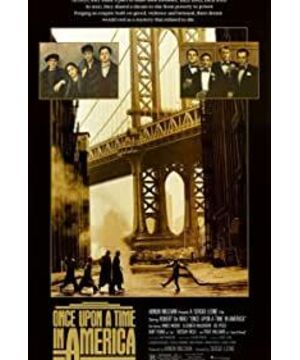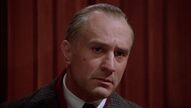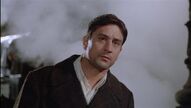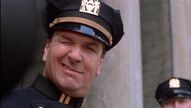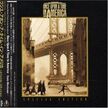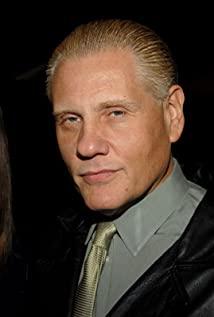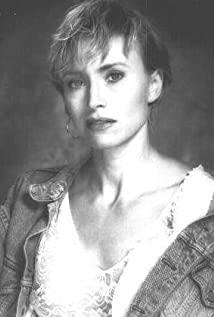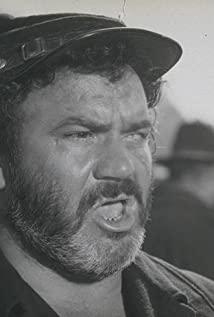So some people would think that such a story can even be used as a genre subject, and it can be independent of any historical and regional context. It can happen in any metropolis that is a crime lair, be it London, Hong Kong, Tokyo or Shanghai. So in the group of shots depicting Nords’ childhood at the beginning of the film, when we saw Manhattan that was rapidly exaggerating in the early twentieth century, when we saw the bustling Jewish quarter, I even went back to Sicily in "The Godfather." The illusion of deja vu. But it’s a pity that this kind of story is only in New York after all. As the title of the film "Once Upon a Time in America" wants to emphasize repeatedly, it is like trying to go back to a special history, a section of "the past," a section in "America." Past events". It has to bring us back to New York in the early twentieth century, to a special era in the United States-the Jazz Age.
The "Jazz Age" was named after the famous American writer Francis Scott Fitzgerald, who wrote a large number of short stories throughout his life that portrayed the United States in the early twentieth century. The entanglement between this writer who is famous for novels such as "The Great Gatsby" and "The Tender Night" and another famous American writer Hemingway reflects the huge difference between their works and individuals. Hemingway helped Fitz gain a foothold in the literary world, but in turn Fitz did not buy Hemingway's tough guy writing style and life attitude. Fitz’s life philosophy of "wine now is drunk now" is nothing but a drunken fan of American society in Hemingway's view. But Fitz used his works and life to vividly describe the special "jazz age" in the United States.
In New York in the early twentieth century, the First World War had ended (1918), but the Great Depression (1929) had not yet arrived. Traditional Puritan morality has collapsed, and hedonism has begun to prevail. In Fitzgerald's own words, "this is an era of miracles, an era of art, an era of spending money, and an era full of ridicule." Fitzgerald called this era the "Jazz Age", and he was also known as the "Chronicle" and "Poet Laureate" of the Jazz Age.
The story of "Once Upon a Time in America" kicked off the background of this era, corresponding to the corresponding plot in the film, which is also the part before Nords' imprisonment. If it corresponds to the social background of the corresponding era in the United States, we will find the connection between the film story and the American Prohibition Act. In February 1919, an alcoholic husband violently assaulted his wife, and his wife brought him to court. This lawsuit triggered a wave of prohibition in American society. With the rise of the feminist movement and the improvement of women's political status, the prohibition movement in hundreds of large and small cities in the United States is huge. The newly appointed US President Harding had to introduce a bill banning the sale and consumption of alcoholic beverages. On February 29, 1920, after just one year, the eighteenth constitution, the well-known Volster Act, was implemented, and the United States instantly became a country without alcohol. However, at this time, alcohol drinkers are not only not banned, but on the contrary, the city has become a hotbed of indulgence and crime. A new type of organized crime-smuggling has also arisen. This country has long been suppressed by the gap between the rich and the poor and the chaotic social order. This move undoubtedly pushed it under the rule of a criminal empire. The Nords and his party in the movie made their fortune through such alcohol smuggling.
However, the criminal empire has gradually become out of order. With the unprecedented development of gang organizations and the corruption and incompetence of officials and police at all levels, the confrontation between the two underworld forces is inevitable. On February 14, 1929, a few years before Norders was about to be released from prison in the film, an unprecedented gang confrontation broke out in Chicago, the famous Valentine's Day massacre. At that time, the Chicago Al Capone gang, dressed as a policeman, shot and killed 7 members of another gang group led by George Moran. However, in the movie, we seem to be able to see the shadow of the gang leader George Moran in the Holocaust. George Moran is better known by the nickname Bugs Moran (Bugs Moran), and the beginning of the film has been chasing and killing Nords and Marx, and it is also the name of the gang leader who eventually killed Little Dominica. (Bugsy). Of course, George Moran has a simpler nickname "Madman." In the film, Nords yelled at Marx at least three times, "Are you crazy?" It also seemed to imply a certain transformation of Marx. , Became a cold-blooded crazy character like George Moran.
Of course, we may have been familiar with this kind of cruel gang struggle. It is completely impossible to hold your heels and rise to the top in the environment at the time without some cruel and vicious means. But the film also shows that this unscrupulous cruelty to anyone is at least contradictory to their childhood innocent friendship. This is especially true for Norders, who witnessed the death of Little Dominic with his own eyes. He did not participate in Marx's bloody struggle because of his many years in prison. He could not accept this cruelty, and he was not as good as the inner struggle before and after Marx. Therefore, precisely because these two people are weak on one side and cruel on the other, the film can rely on such a magnificent background to achieve a meticulous depiction of the characters' inner struggles.
Therefore, every fragment of this film seems to be imprinted with the traces of the United States, and every fragment of it is so worth chewing. For example, Depera said Marx's words to Norders when she was old. She said that he came to the United States alone, with nothing, but relying on his own ability to work hard to live a comfortable life. This is of course a cliché of the typical American dream. But if we think about it, this is actually the beautiful vision that everyone in the United States in the jazz age yearned for, a longing for material prosperity, and an ambition to control the future in their own hands. This is the tone shift of the American Dream in the Jazz Age. Of course, there are actually many, many connections between the Jazz Age and Fitzgerald, and there are many, many connections between Prohibition and American gangs. However, it is now obvious that the film has been deeply tied to the social history of the United States since its opening.
Published
View more about Once Upon a Time in America reviews


